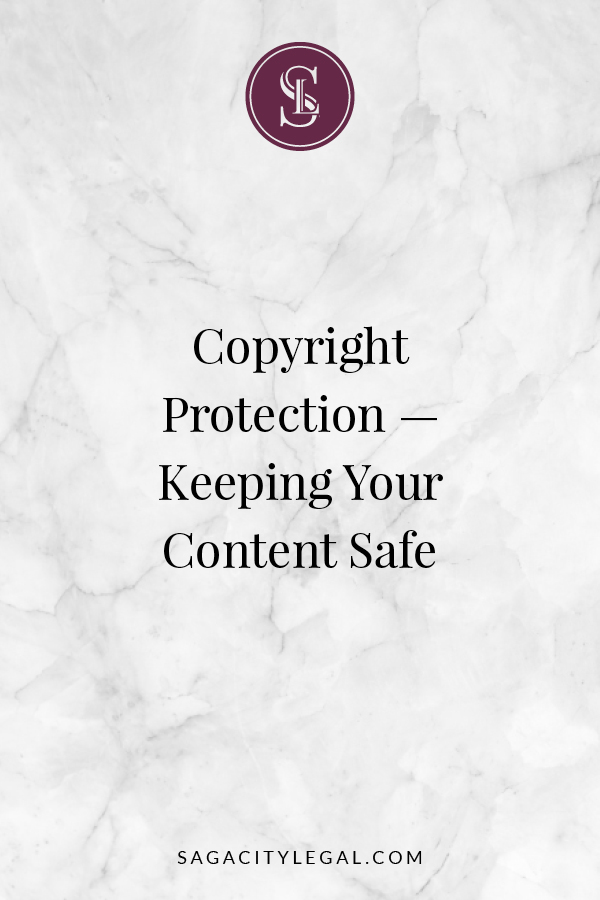What does Copyright Protect?
Copyright law provides protection for original works of authorship. Above all, it gives the owner exclusive rights in the work created including to:
- reproduce copies,
- distribute copies,
- create derivative works, and
- authorize others to do so.
When does Copyright Protection Start?
Unlike many other intellectual property laws, copyright protection starts upon creation. In other words, it begins when a work is fixed in a tangible meeting, copyright protection applies.
How do I Ensure Copyright Protection of My Content?
Copyright Notice
The simplest first step is a “Copyright Notice”. Specifically, a Copyright Notice makes the public aware that you claim ownership. Notice also identifies the copyright owner for parties seeking permission to use the work.
Copyright Notice specifically consists of a single continuous statement that includes:
- copyright symbol ©; the word “copyright”; or the abbreviation “copr.”
- year of first publication of the work; and
- name of the copyright owner.
Copyright Registration
For your key works, therefore, including unique software, databases, graphic user interfaces, manuals, writings, and recordings, register a copyright.
Additional Protections
Additionally, copyright registration provides these protections:
- presumption of ownership and validity,
- constructive notice to competitors,
- legal foundation to pursue copycats,
- ability to sue for actual damages and for a court order to stop the use
- copyright protection lasts for the life of the author plus 70 years
How to Register a Copyright?
To register with the United States Copyright Office, in particular submit an application to the Registrar of Copyrights along with a fee and a “deposit” of the work. Truly, copyright registration provides a low cost, high value content protection.
Can I Get a Global Copyright?
Copyright registration covers specific territories. In other words, registering a United States Copyright does not provide you an “international copyright registration.” However, many countries participate in international conventions. International conventions and treaties provide protection in other countries. In fact, a United States copyright automatically protects against infringement in a foreign jurisdiction that is a member to a convention. Specifically, no registration in the foreign jurisdiction required. Therefore, you can bring lawsuits against infringement not only in the United States but also many other countries.
Copyright protection can be a valuable mechanism to minimize your legal risk.
Therefor, it’s a good idea to evaluate your current practices and then take that first step to securing your success.
Do you need help with your Copyright strategy? Contact us here.
Want to take the first step to legally securing your success? Get your Free Ebook today!


leave a comment on this post.